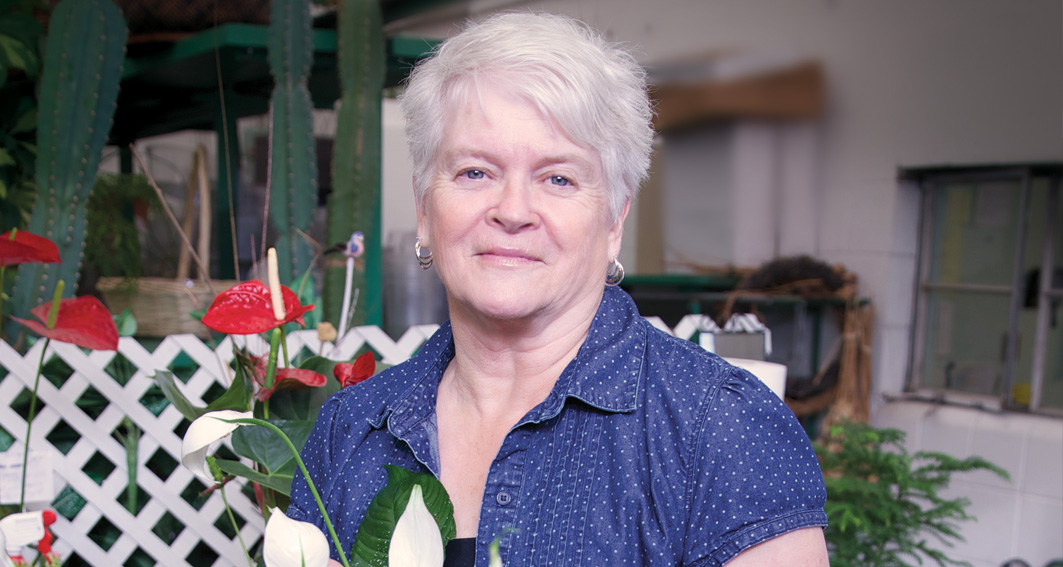A 74-year old grandmother named Barronelle Stutzman has now managed to lose twice at her state’s highest court, including this week, over the issue of religious conscience and sexual orientation nondiscrimination laws. She will now defend herself by asking the U.S. Supreme Court to get involved. Also for the second time.
Stutzman, you may recall, is the owner of Arlene’s Flowers in Richland, Washington, who in 2013 declined to use her creative talents at floral arranging to celebrate a same-sex wedding of a long-time customer of hers. She instead explained her religious beliefs about marriage, and referred him to some nearby florists.
The Attorney General of Washington, Bob Ferguson, joined with the American Civil Liberties Union to assault Stutzman’s act of religious conscience by filing not one, but two separate lawsuits against her. Ferguson and the State of Washington even sued Stutzman in her “personal capacity,” as well as her business, meaning that they could, if they won, seize both her business and her life savings to pay for any damages she was found guilty of, including attorney’s fees, which by now could be in the millions of dollars.
How did she lose twice? After the Washington State Supreme Court ruled against her the first time in 2017, Stutzman appealed to the U.S. Supreme Court, which was just then considering the case of Masterpiece Cakeshop v. Colorado Civil Rights Commission, involving the religious conscience rights of Jack Phillips, a baker in a Denver suburb who had been subjected to a similar prosecution for sexual orientation discrimination under Colorado law.
When the nation’s highest court ruled in Phillips’ favor based on the anti-religious animus exhibited by officials in Colorado in handling his case, it also vacated (erased, as if it had never been decided) the Washington Supreme Court’s decision against Stutzman and sent her case back to that state court. The U.S. Supreme Court tasked the Washington Supreme Court with taking another look at Stutzman’s case in light of the Masterpiece decision. Translation: “There may be something important in the Masterpiece ruling that would impact Stutzman’s legal claims, so take another look at it.”
The Washington Supreme Court did so, and once again held that Stutzman had violated the state nondiscrimination law, and specifically ruled that none of the Washington state courts (meaning itself and one lower court) had exhibited any anti-religious animus against her.
It is this latter point which now has Stutzman’s lawyers at Alliance Defending Freedom (ADF) talking about another trip to the U.S. Supreme Court. As ADF’s news release states:
“Washington’s highest court read the Masterpiece Cakeshop decision as narrowly as possible, saying that the U.S. Supreme Court’s condemnation of government hostility toward religion applies only to adjudicatory bodies and no other branch of government. As ADF attorneys explain, other U.S. Supreme Court decisions say the exact opposite. In fact, Stutzman’s argument that the state attorney general showed hostility toward religion is what caused the U.S. Supreme Court to send the case back in the first place.”
In addition to misreading the Masterpiece decision, the Washington Supreme Court also ignored a glaring example of the state’s animus toward Christians, involving the state’s refusal to prosecute a coffeehouse whose owner profanely berated and expelled Christian customers, openly mocking their faith in the process.
Ironically, Stutzman still considers her homosexual-identified customer a friend, and holds no ill-will against him. “I’m obviously disappointed and upset about today’s ruling,” Stutzman said. “I loved and served Rob for nearly 10 years and I would serve him for another 10 years. It never mattered to me that he was gay…. No artist or creative professional should be forced by the government to create custom work that conflicts with their deeply held beliefs.”
“That’s why I will appeal my case to the U.S. Supreme Court,” Stutzman stated.






